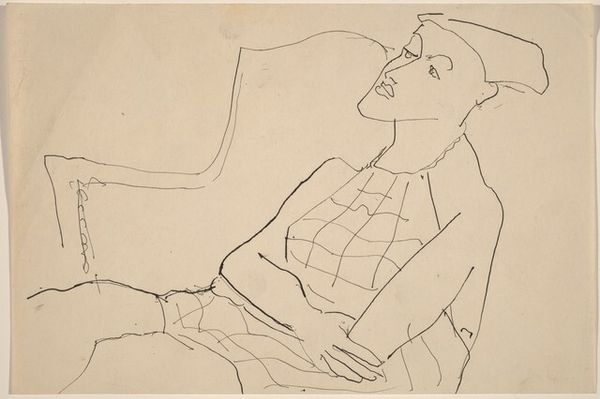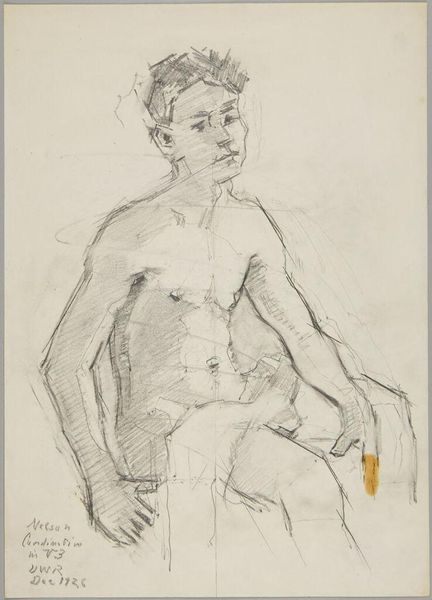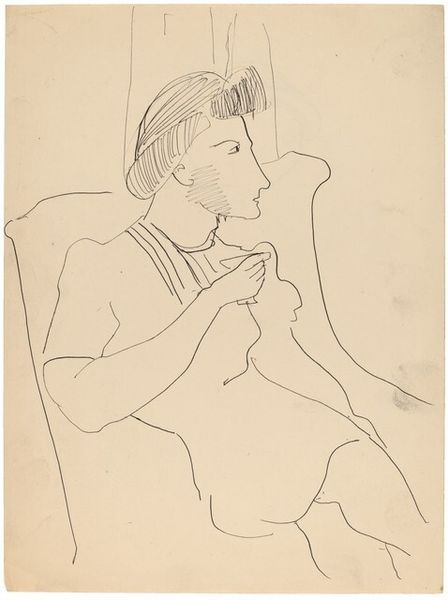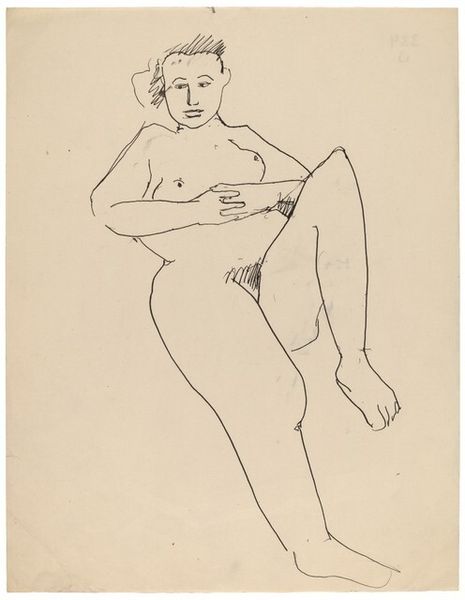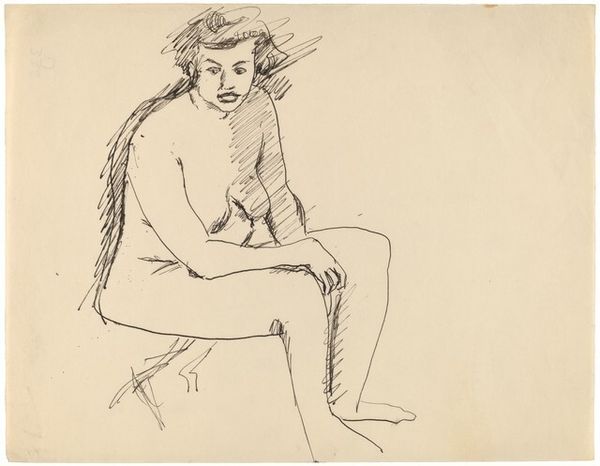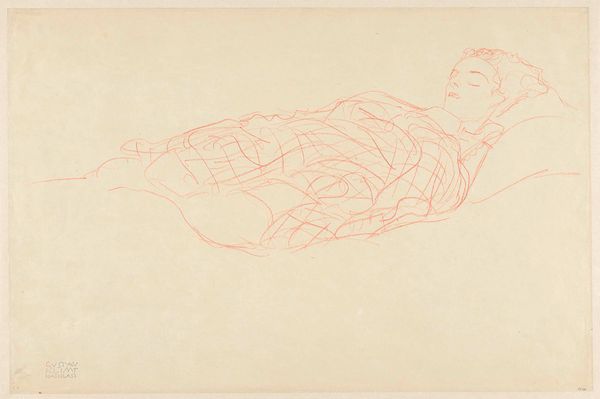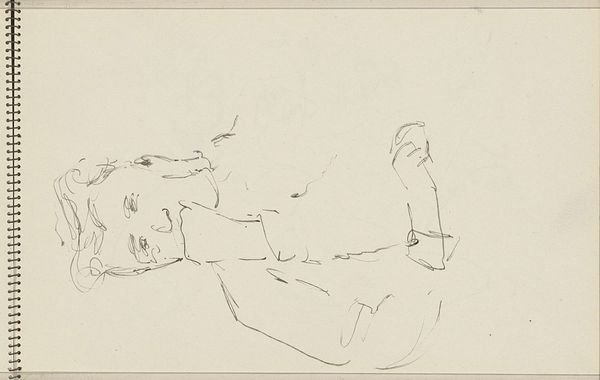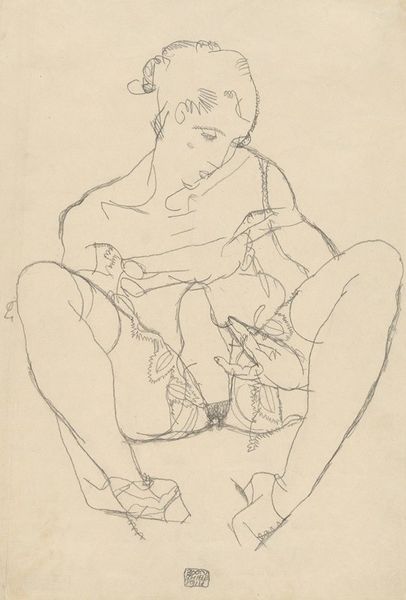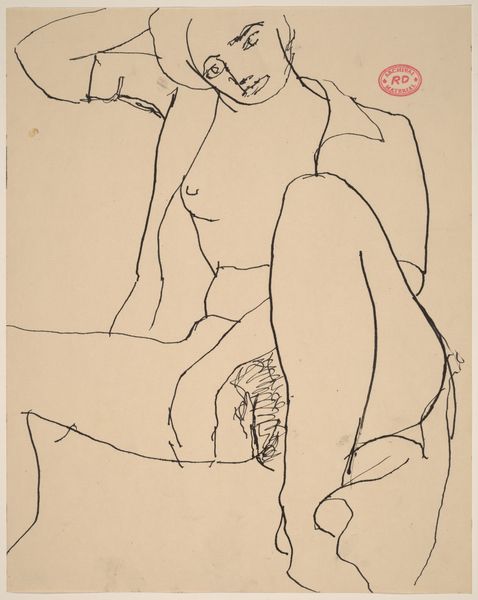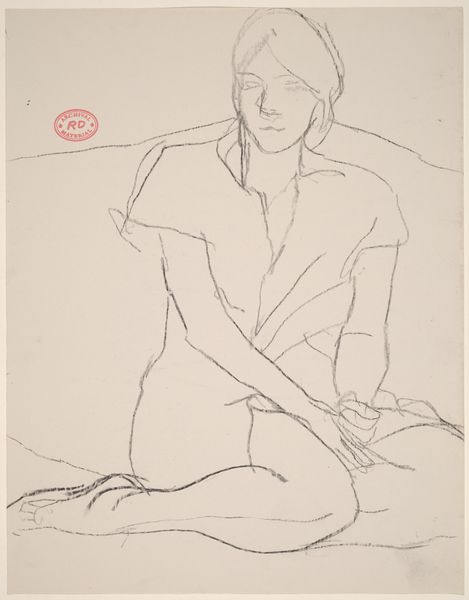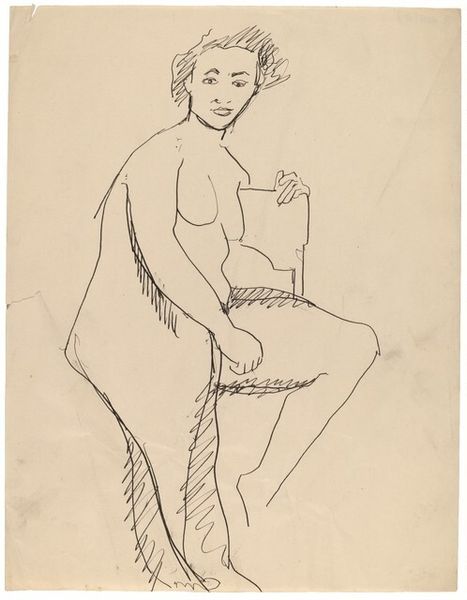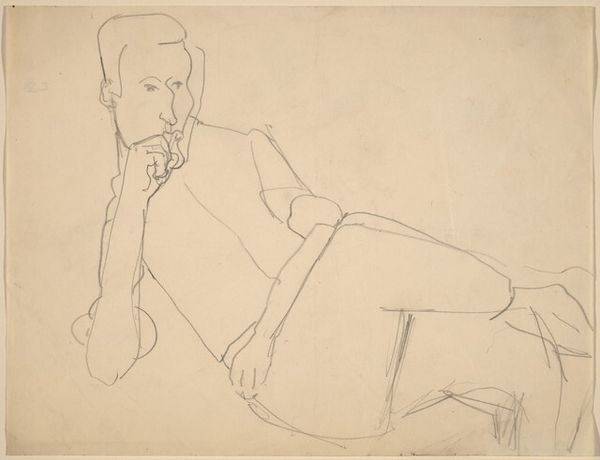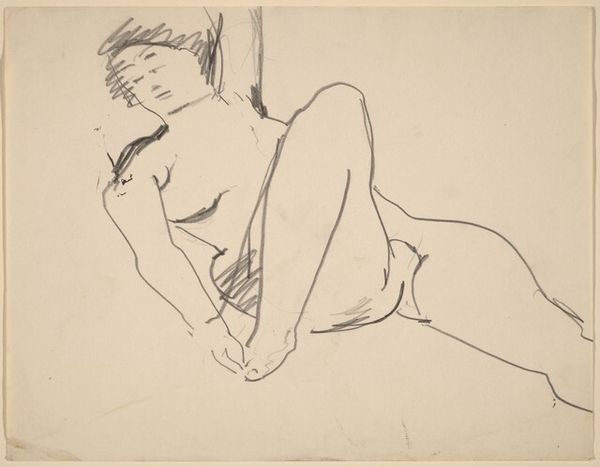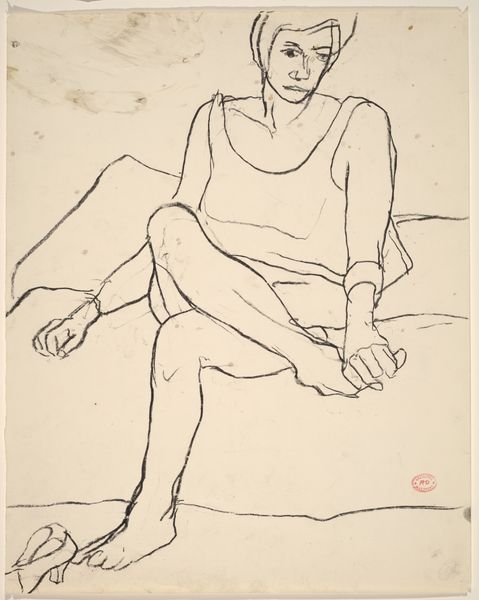
drawing
#
drawing
#
light pencil work
#
ink drawing
#
pencil sketch
#
personal sketchbook
#
idea generation sketch
#
ink drawing experimentation
#
pen-ink sketch
#
sketchbook drawing
#
portrait drawing
#
pencil work
Dimensions: overall: 21.4 x 27.8 cm (8 7/16 x 10 15/16 in.)
Copyright: National Gallery of Art: CC0 1.0
Curator: Mark Rothko, primarily known for his abstract expressionist paintings, created this surprisingly representational drawing, titled "Woman in Checked Sun-Suit, Propped on Elbow". Editor: The first word that comes to mind is "vulnerable." There's something exposed and intimate about this ink drawing. The light pencil work feels like a fleeting thought, barely captured. Curator: It's interesting to see Rothko exploring the figure here, quite different from the monumental canvases he later became famous for. Consider the socio-political context of the time. Post-war America saw shifts in gender roles and societal expectations of women. How might this image relate to those dynamics? Editor: Absolutely. The pose, casually reclining, could be seen as a subtle act of defiance, especially if viewed through a feminist lens. It's about taking up space, claiming a sense of self in a world that often dictates otherwise. And that checked sun-suit adds an interesting dimension—suggesting domesticity mixed with a playful energy. It feels deliberately casual and unglamorous. Curator: Rothko’s sketch appears almost like an initial exploration, more a thought captured than a fully realized image. It prompts reflections on how female representation functions within visual culture. Editor: Right. Also, how do you interpret that slight unease? The sketchiness emphasizes the lack of conventional beauty, forcing us to confront assumptions. Curator: The artwork reflects both personal and political anxieties regarding femininity. Editor: Looking closely at her gaze and slightly tense posture, what seems to me is less about beauty than about truth, even discomfort. Rothko asks the viewer to meet that honesty head-on. It resists the male gaze in interesting ways, challenging accepted modes of presentation in early 20th-century portraiture. Curator: Perhaps what captivates here is not just artistic ability, but the rare opportunity this drawing gives us, allowing insight into a part of Rothko, of the period in question, of a kind of aesthetic resistance that contrasts greatly with what is to come later. Editor: Agreed. This artwork is much more complicated than a simple drawing; it invites us to consider our relationship with identity, particularly that of women within a rapidly evolving social environment.
Comments
No comments
Be the first to comment and join the conversation on the ultimate creative platform.
